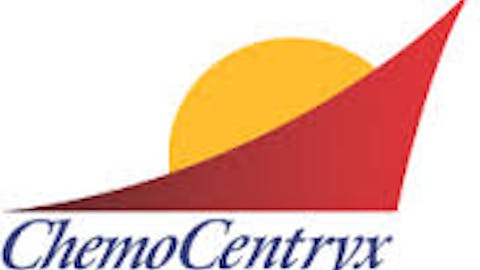While Foolish readers know all too well that a good turnaround story can drive excellent shareholders, sometimes discretion is the better part of valor and it makes more sense to just get out and move on. That is the attitude of Johnson & Johnson (NYSE:JNJ) with respect to its Ortho Clinical Diagnostics, or OCD, business, with the company openly acknowledging that it has begun discussions to sell this long-underperforming unit.
All things considered, investors may end up surprised with how much Johnson & Johnson (NYSE:JNJ) ultimately gets for this unit. While it has a small presence in the overall global diagnostics market (about 4% to 5%) and sales have been declining due in part to a lack of reinvestment, past deals between Agilent and Dako and Danaher Corporation (NYSE:DHR) and IRIS and Beckman Coulter suggest that a $5 billion price tag may be a pretty realistic estimate at this point.

When considering who might buy Johnson & Johnson (NYSE:JNJ)’s diagnostic business, it’s important to consider what it is and where it remains relatively competitive.
J&J is still a strong top-five player in clinical chemistry, immunoassay, and transfusion products. All told, OCD exited 2012 with about 5% share of the professional diagnostics market which includes clinical chemistry and immunoassays. Although the company hasn’t reinvested in this business to stay on the leading edge, the Vitros platform is still a credible contender in the automated chemistry market, and JNJ has retained a viable platform in immunoassay.
Last and not least is the transfusion market, where J&J OCD remains a significant player in the reagents and tools used for blood typing and antibody screening. Although Immucor gained quite a bit of share from Johnson & Johnson (NYSE:JNJ) (due to its investments in automated systems), J&J OCD can still boast roughly one-third market share around the world in what is really just a three-company industry.
J&J Ortho Clinical Diagnostics has virtually no presence in the fast-growing molecular diagnostics arena, where companies like Roche, Abbott, and Novartis have already seen early success. Likewise, point of care, urology, hematology, and advanced staining/pathology are not notable areas for the company.
Who Might Step Up?
When it comes to a sale of OCD, I certainly wouldn’t rule out the possibility that a financial buyer (a private equity investor, or consortium of such investors) will be the ultimate winner. Johnson & Johnson (NYSE:JNJ) has been harvesting cash out of OCD for some time now and under-investing in the business (which suggests that stripping out costs won’t be a major opportunity for a financial buyer), but investors in challenged diagnostics companies like Dako have come out well in the past, and they may see this as a similar opportunity
I would be surprised if Abbott Laboratories (NYSE:ABT), Roche, or Siemens had major interest. Abbott Laboratories (NYSE:ABT) is most keenly interested in boosting its overall growth profile, and building up faster-growing areas like molecular diagnostics, and I don’t see a Johnson & Johnson (NYSE:JNJ) OCD buy adding much more than operating synergies. Likewise for Roche and Siemens, though their relatively strong presence in Europe versus North America could reduce the extent of the overlap.
Becton, Dickinson and Co. (NYSE:BDX) could have some interest. The company has a presence in molecular diagnostics and strong share in areas like culture media, blood culturing, STD and HAI testing. Buying OCD would certainly broaden the company’s base of business and the “fixer upper” nature of OCD could fit well with BD’s solid operating capabilities. The biggest downside here, though, would be that BD is really focusing on getting customers to adopt its BD Max molecular diagnostics platform and developing additional assays — buying OCD could be seen as a distraction to that goal.





